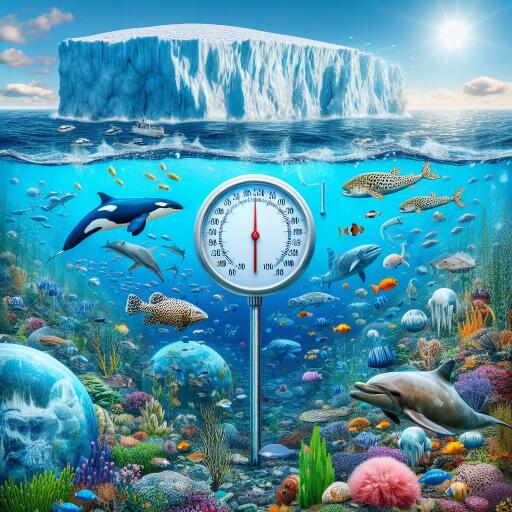
UNESCO Report Warns of Accelerated Ocean Warming and Rising Sea Levels
In an alarming update on the health of the world’s oceans, the United Nations Educational, Scientific and Cultural Organization (UNESCO) has unveiled its latest findings in the “State of the Ocean Report 2023.” This comprehensive analysis, a collaboration involving over 100 scientists from nearly 30 countries, presents a sobering view of the oceans’ future amidst climate change.
The oceans, covering more than 70% of the Earth’s surface, are under unprecedented strain due to various factors directly linked to climate change. The report points out a disturbing acceleration in ocean warming, with current rates doubling those observed two decades ago. Such rapid increases have resulted in recent years, including 2023, ranking among the hottest on record since the 1950s. Notably, the report highlights that ocean temperatures have surged by an average of 1.45°C, nearing the threshold set by the Paris Agreement, which seeks to limit global warming to below 2°C above pre-industrial levels.
Rising sea levels are another critical concern spotlighted in the UNESCO study. Over the past three decades, sea levels have ascended by approximately 9cm, with the acceleration rate doubling during this time. This phenomenon is primarily attributed to the thermal expansion of seawater as it absorbs 90% of the excess heat from the atmosphere, contributing to 40% of the observed sea level rise.
The ocean’s declining health further manifests in reduced oxygen levels and increased acidification, posing a severe threat to marine biodiversity. With a 2% drop in oxygen levels since the 1960s, the ocean now harbors over 500 areas identified as “dead zones,” where marine life struggles to survive. Fluctuations in acidity exacerbate the situation, causing widespread die-offs, particularly among juvenile marine species who cannot adapt quickly enough.
Addressing the report’s findings, Audrey Azoulay, Director-General of UNESCO, called attention to the urgent need for concerted global action. “The UNESCO report underlines the escalating impact of climate change on our oceans. From temperature and acidification to rising sea levels, all indicators point towards an emergency,” Azoulay remarked. She urged member states to prioritize the restoration of marine ecosystems, such as mangroves, seagrass meadows, and tidal marshes, which are vital for carbon sequestration and biodiversity conservation. Despite the critical roles these habitats play, an alarming 60% of countries have yet to include marine forests in their climate action strategies.
UNESCO remains committed to leading the charge in ocean conservation through initiatives such as the UN Decade of Ocean Science for Sustainable Development (2021-2030). This ambitious agenda has already catalyzed over 500 projects worldwide, with efforts spanning scientific research, seabed mapping, and the promotion of innovative solutions for ecosystem protection. With more than a billion dollars mobilized in support of these initiatives, the organization is at the forefront of international efforts to enhance our understanding and stewardship of the ocean, striving for a future where these vital ecosystems are restored and protected.





Leave a Reply